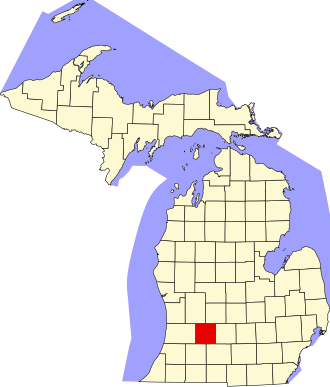Michigan Unveils Nearly 2,000 Pages of Election Training Materials Amid Oversight Scrutiny
In a significant move toward transparency, the State of Michigan made nearly 2,000 pages of election training materials available to the public after being pushed by state lawmakers. The materials, including training newsletters, clerk guides, and guides used on election day, were made public Friday. This comes on the heels of a subpoena from the Michigan House Committee on Oversight, reflecting heightened interest in the electoral process of the state.
The rollout is not a drama-free one. At the center of controversy is a complaint filed by House Republicans, alleging the Secretary of State’s office was dodgy about releasing information that should be made public. Their number one priority: information about how 15 noncitizens allegedly voted in the 2024 election. Of those cases, 13 have been referred to the Michigan Attorney General for potential criminal prosecution.
The newly released records are supposed to provide a sense of the overall approach to training election workers around the state—everything from step-by-step guidance on working with ballots to the care and feeding of voting machines and dealing with voters. But the controversy has raised bigger issues about the integrity of elections, transparency and security, and the public’s right to know how democracy works.
Michigan Department of State Chief Legal Director Khyla Craine responded to the release by reaffirming the department’s commitment to transparency. “All staff of the Michigan Department of State are committed to transparency and openness to the public whom we serve,” she said. But she prefaced that with a warning: even as it makes that information available, the department has a responsibility to also guard sensitive information that would be used for nefarious purposes by opposing parties.
Craine emphasized there are forms of information such as information that may contaminate the chain of custody for votes, instructions that may help vote tampering or data that can be utilized in a way to impersonate election personnel – that need to be handled confidentially. “We are also working to protect sensitive information that, if made public, bad actors might manipulate to disrupt things,” she continued.
This delicate balance between election transparency and security is the political debate point in Michigan today. House Republicans have argued that transparency could not be selective, especially when it comes to matters as critical as election integrity. They had complained about the delay by the Secretary of State’s office in surrendering documents that might otherwise prove to explain how these administrative errors occurred.
On the other hand, election authorities caution that while it is positive that lawmakers and the public can be informed on how elections are conducted, none of the nuances of how they are conducted needs to be exposed. Too much information, especially plucked from context, will be security liabilities or taken out of context.
The 15 noncitizens’ case inflames an already politically charged atmosphere. Critics fear that this story has the potential to destroy public confidence in the election process, while defenders of the process observe that the system worked as intended detection and referral of anomalies for further investigation. They observe that no system is ever going to be perfect, but Michigan’s detection and reporting systems worked effectively to identify and correct the mistakes.
One thing that is for sure is the nearly 2,000-page dump is merely one chapter of a long debate about election transparency, accountability, and trust. To voters, the dump provides them with an insider’s peek at how hard clerks and poll workers are trained to have elections be transparent. To lawmakers, it is a tool for looking at what failed and, more importantly, how the same can be avoided in the future.
Standing before us, both sides agree on this one fact: voter confidence needs to be maintained. Whether it is tighter education, more stringently controlling regulation, or greater protection to stave off even occasional voting errors, this press release fiasco will linger well into the next election cycle.
During a period of election integrity being brought under the nation’s spotlight, Michigan’s step to fling open the books literally about how it trains its election officials serves as a model. More argument or more trust will follow only time. In the meantime, the public and lawmakers are free to access the nitty-gritty reports that comprise the state’s machinery of democracy.







